Art and anti-racism in surf culture: Can an inclusive designer change things?
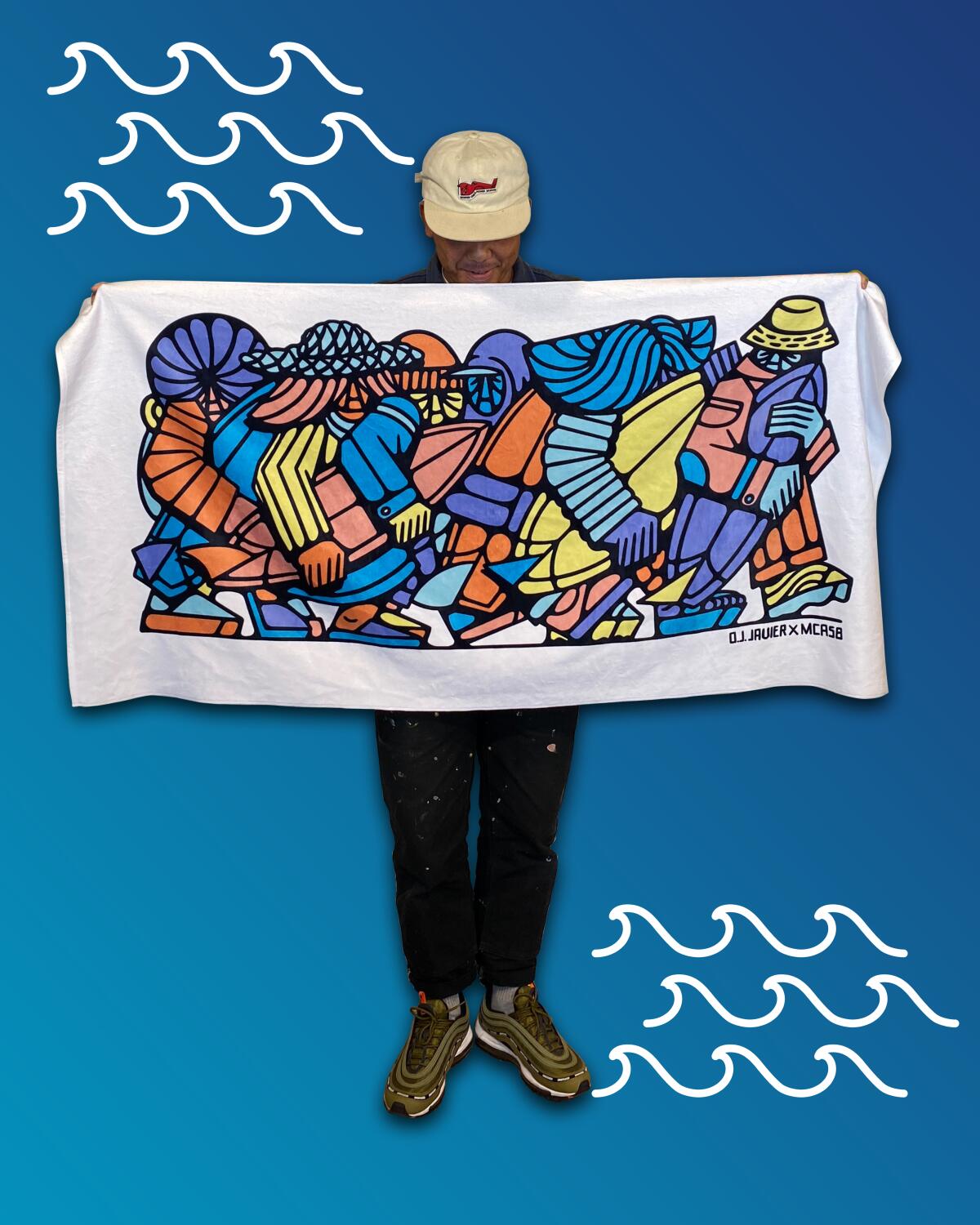
By Mary Forgione
Welcome to The Wild. DJ Javier finds time to surf three or four times a week in his much-loved Santa Barbara, which is remarkable considering he runs his fashion line of T-shirts, shorts and hats called Canto Vision, works as art director at SeaVees shoes, has created some of the city’s newest landmark murals and is about to have his first child. The 28-year-old graphic artist also recently collaborated on a project with the Museum of Contemporary Art Santa Barbara.
The museum asked him to design something that reflects his take on Santa Barbara, to develop a theme that’s close to his heart and speaks to his community. Javier, known for melding inclusive themes into his works, designed a beach towel decorated with stylized surfers. “I think a towel is like an [art] print that you can use,” he said.
The towel’s message explodes with meaning. “You see these people, and you see the diversity in their skin tones and the clothing and the hair, and I use super vibrant colors,” Javier said, describing his work. “Just by looking at it, you can peek into this fictional world I’ve created that enters into this idea of diversity. The common thread between all these different people ... they’re all moving together with surfboards.”
The image couldn’t be more timely.
In February, two Black surfers in Manhattan Beach were pelted with insults and the N-word during an altercation that was captured on video and posted on Instagram. Reaction was swift among surfers and nonsurfers who put surf culture on notice. To “reset the tone,” the pair galvanized supporters by organizing a Peace Paddle on Feb. 21. Here’s a story that explains how this all went down.
Javier, a first-generation Filipino American, understands the “localism” of surf culture is often a smokescreen for racism. He credits the two surfers (@blacksand.surf) with sounding the call to bring more people of color into surfing. “I’m struggling to unpack what happened on my own, and I think often in surfing, systemic racism is totally intertwined with the culture,” he said. He points to groups trying to change that, such as Color the Water in Venice and Un Mar de Colores in Encinitas.
Back to the towel. It measures 30 by 60 inches and sells for $60, with proceeds going to the museum. Order here.
3 things to do this week
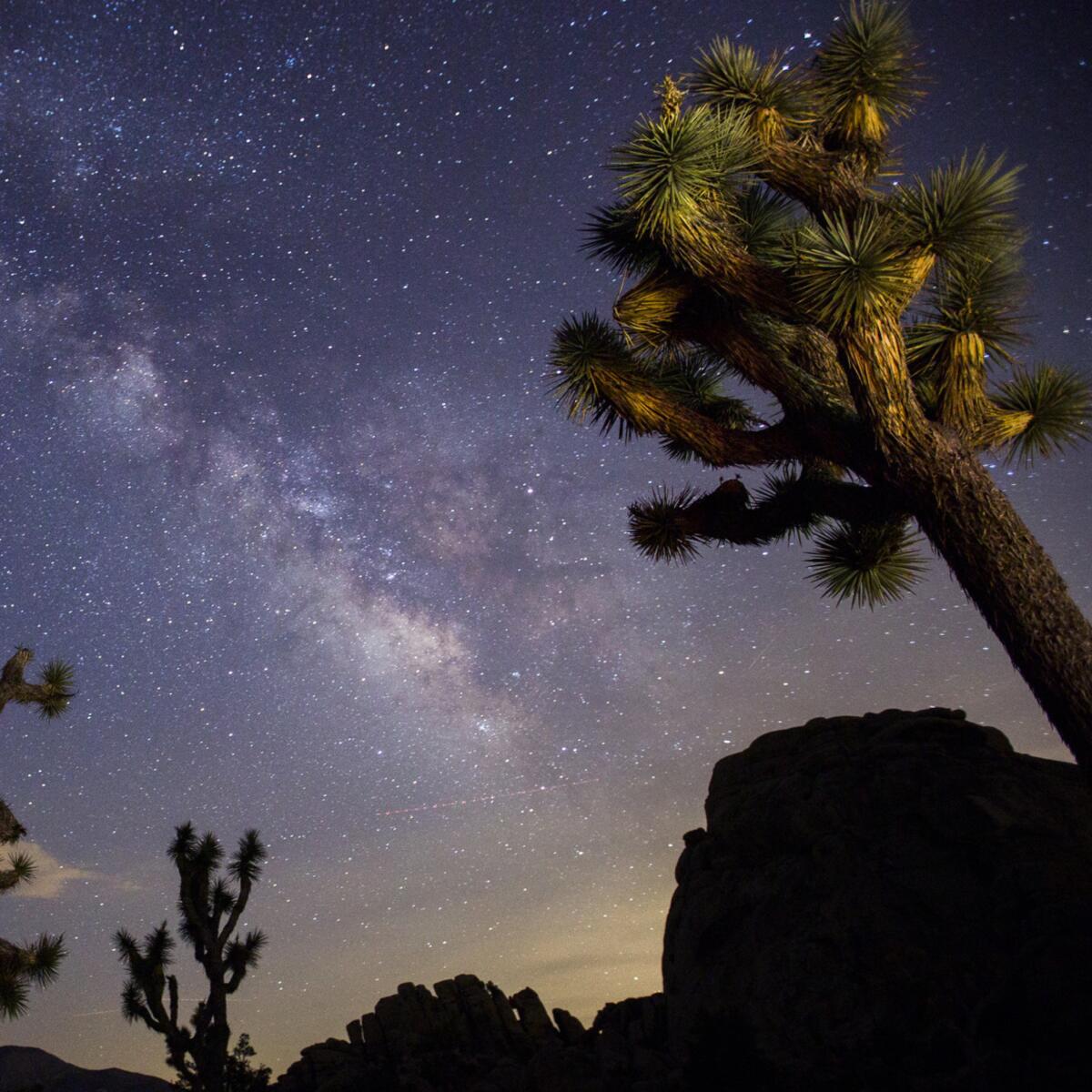
1. Go stargazing in the desert during International Dark Sky Week.
Once upon a time, you could look up and see the stars in the night sky. That’s harder to do these days for the 82% of Americans who live in cities that cast a wide urban glow. International Dark Sky Week, April 5-12, aims to raise awareness about the downside of light pollution. You can visit an official dark sky park east of L.A. — Joshua Tree and Death Valley national parks plus Anza-Borrego Desert State Park — to see what you’re missing in the night sky. Check out this Death Valley guide on where to go and Joshua Tree National Park’s tips for night-sky watching. Also, learn how light pollution affects animals and desert plants in Mojave Trails National Monument in a free virtual seminar (register here) at 6 p.m. on April 8, hosted by the Mojave Desert Land Trust and the Conservation Lands Foundation.
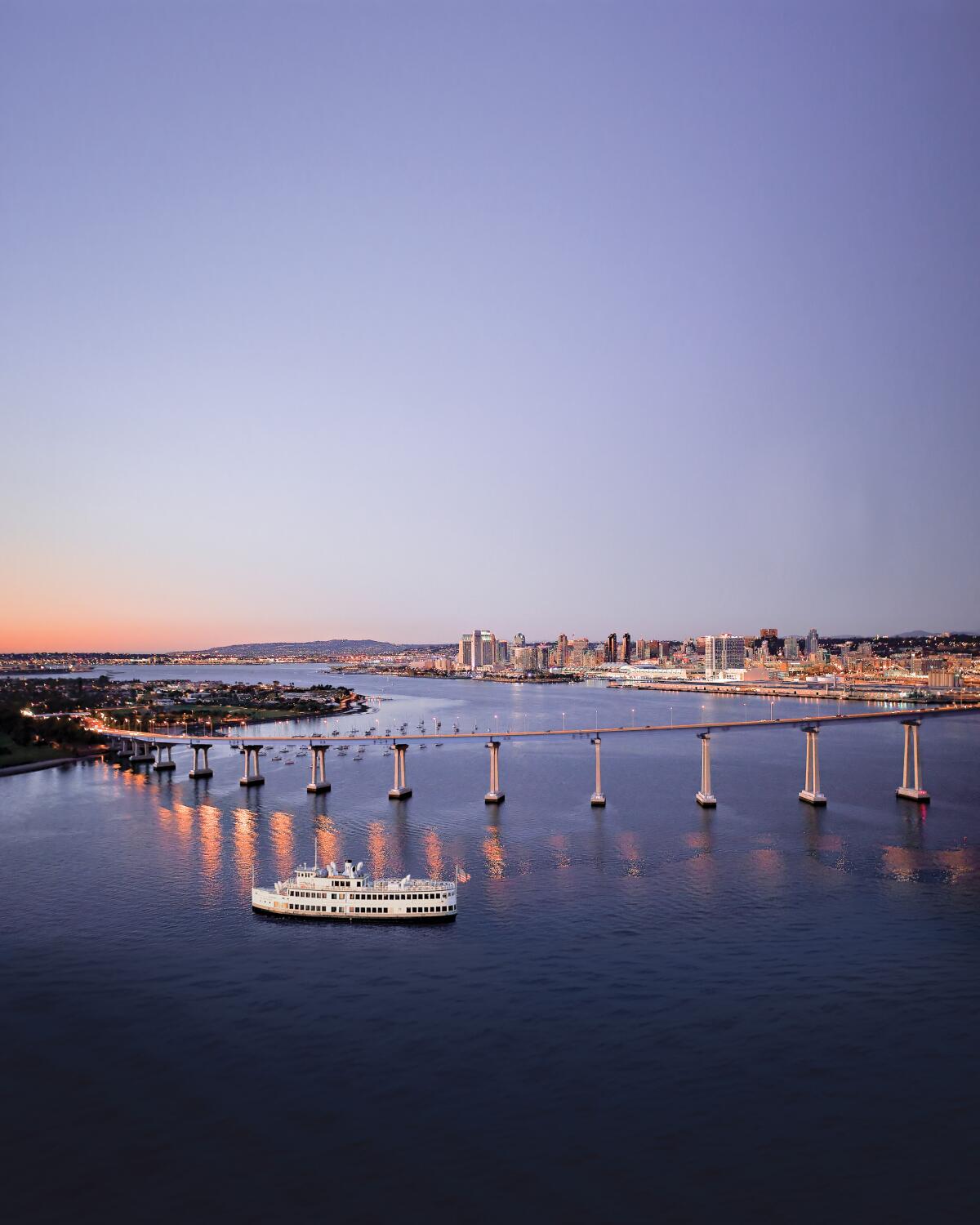
2. Catch “La La Land” under the stars during this floating film series.
Who could forget the audacious dancing your way out of L.A.’s freeway traffic? That magical moment is the first thing you see in the 2016 film “La La Land.” For a different film-viewing experience (we’ve all been inside too long), you can watch the movie on a large screen while sailing in San Diego Bay. Hornblower Cruises hosts the dinner-and-movie event from 6 to 8:30 p.m. April 9. Dinner includes an entree, dessert and popcorn. Tickets cost $55 for adults, $35 for children ages 4 to 12, and $149 for families (two adults and two children). Other films in the series include “Grease” on April 2 and “Zoolander” on April 16. More info at Hornblower Cruises.
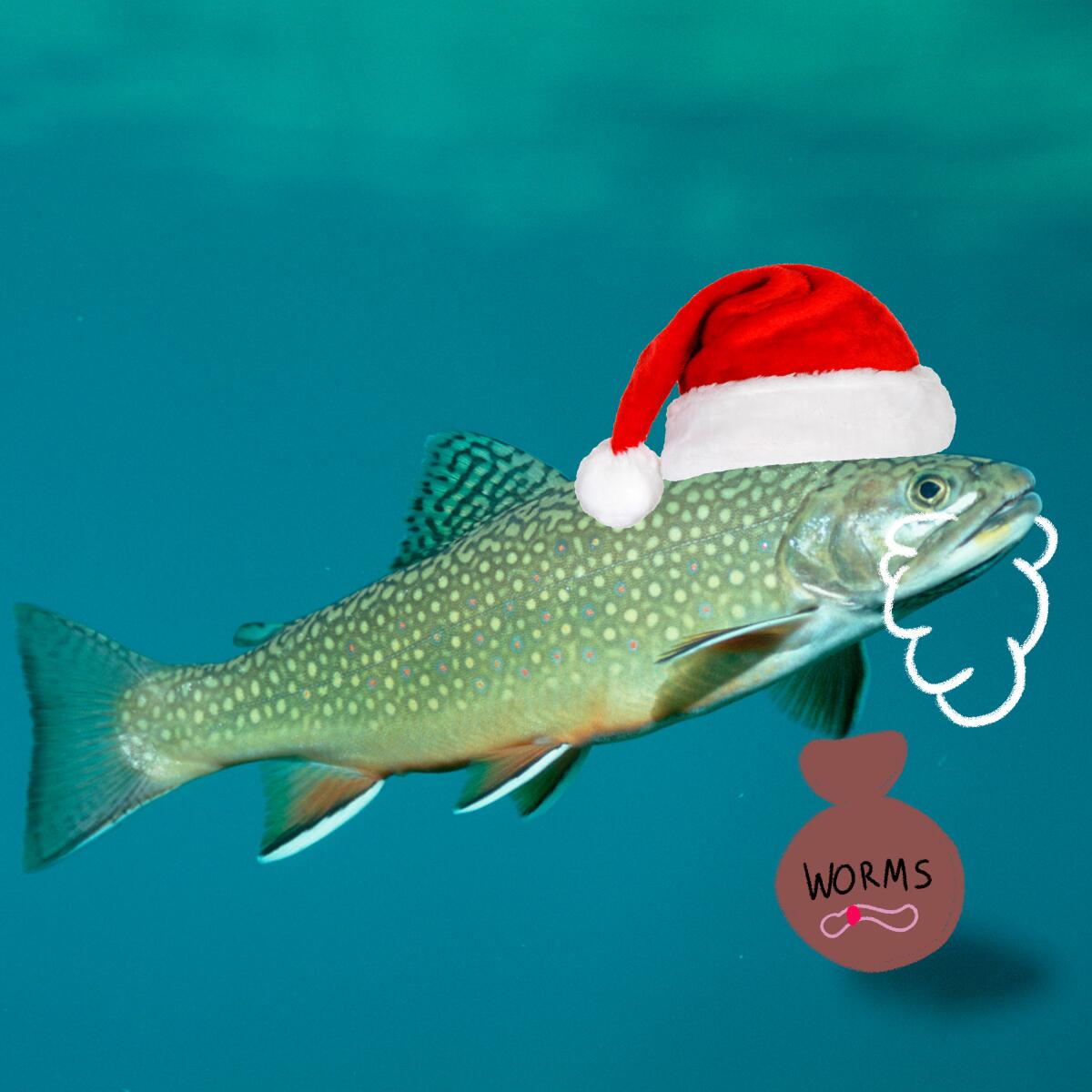
3. Go trout fishing now — or wait until Fishmas. Yes, people, it’s Fishmas in April, just like always. Trout fishing season opened March 1 for inland lakes and reservoirs throughout California and, under new rules, will remain open year-round. That means anyone with a fishing license can catch up to five trout a day. However, you’ll have to wait a little longer to fish at Convict Lake, Lake Crowley, June Lake and other “resort lakes” near Mammoth Lakes in the Eastern Sierra. That’s because the most popular fish-stocked waters will continue to have a traditional opener starting at 5 a.m. April 24 at Lake Crowley. The season, referred to as Fishmas, ends Nov. 15. The rules change for streams, rivers and canals. They are open year-round for catch-and-keep in summer and catch-and-release in winter. Confused about what’s open and when? Check rules and regulations at monocounty.org and the California Department of Fish and Wildlife.
The must-read
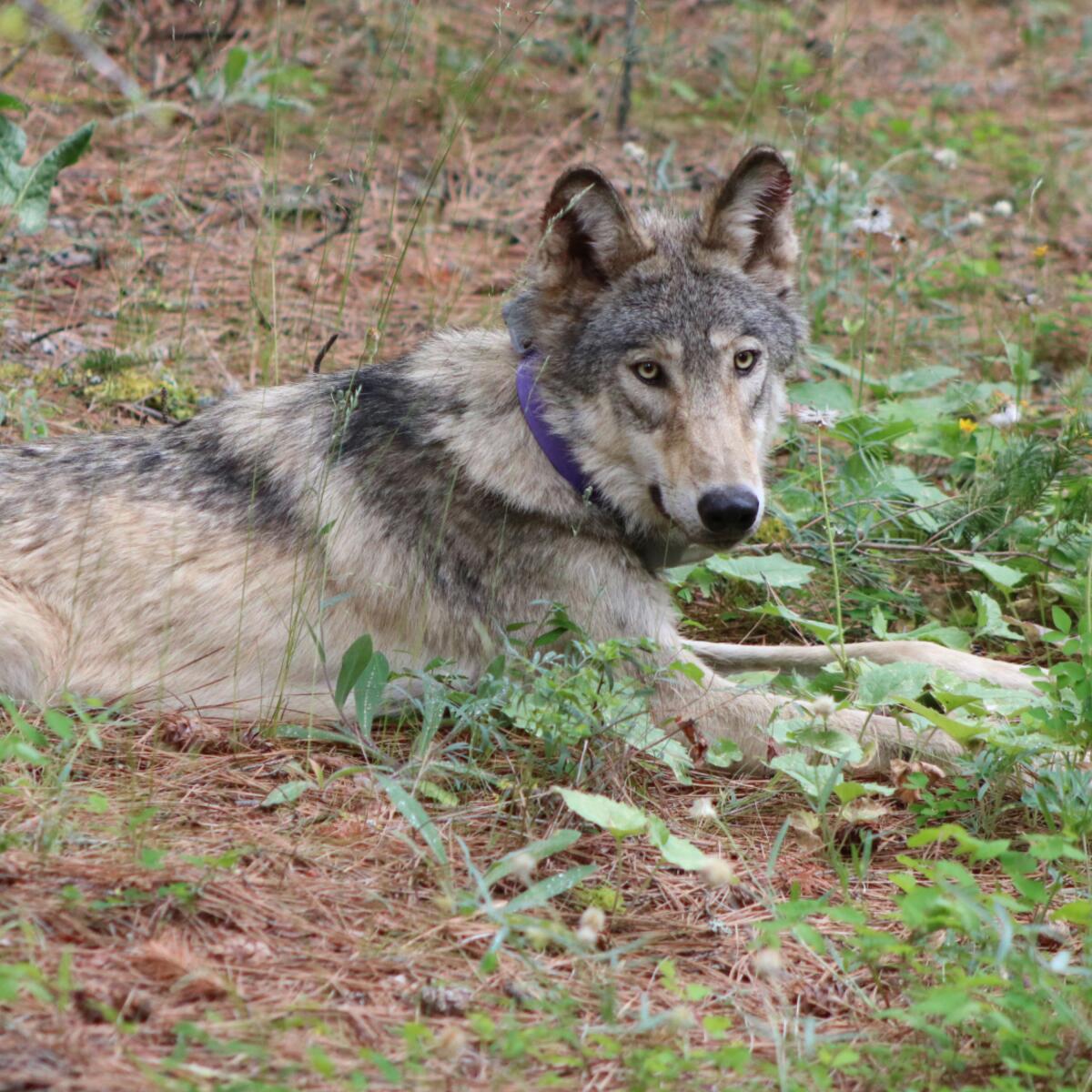
How far can a lone wolf travel? A 2-year-old gray wolf from Oregon, tagged as OR-93, has been surprising researchers in his “epic search for territory and mates.” My Times colleague Louis Sahagún writes: “In just under two months, the young male known as OR-93 has blazed a scented trail past Northern California lava beds, over snowy passes of the Sierra Nevada, and along the outskirts of Yosemite National Park. This week, OR-93 emerged in an agricultural area near Fresno.”
Scientists know where he goes by following the animal’s GPS tracking collar. The big question is whether he’ll stay in the Golden State. Wolves are listed as an endangered species in California, and OR-93 would have a tough time turning that around. For starters, there’s no big game for him to hunt in the outskirts of Fresno, which could pose a threat to livestock. The story explains other dangers OR-93 faces.
What’s missing
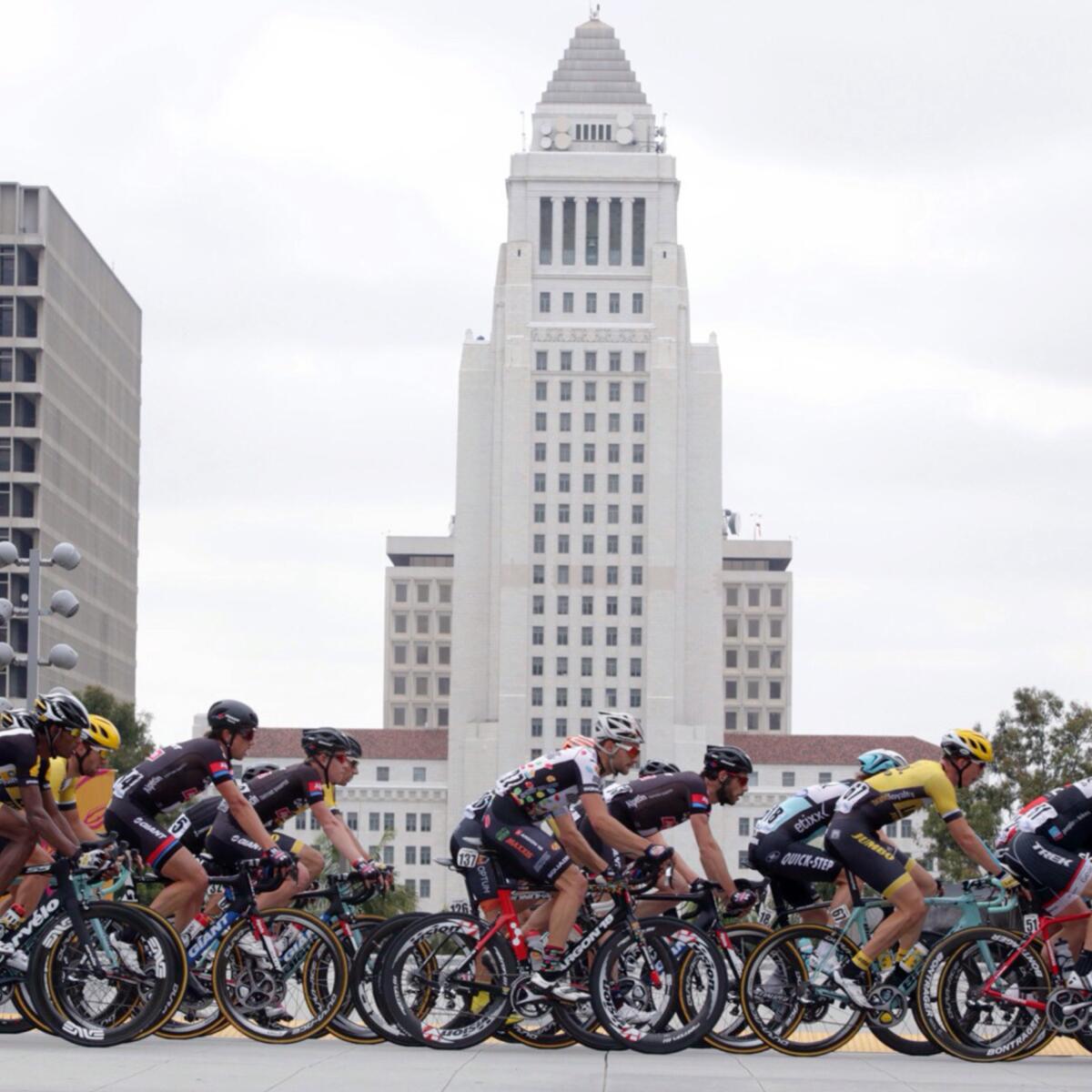
I somehow missed something that happened before COVID-19 became a household word: The Amgen Tour of California faded away. The elite bicycling event planned a “hiatus” for 2020 — something that, in retrospect, probably would have happened anyway because of the pandemic. Still, no 2021 race was scheduled. Cyclingnews wrote a eulogy for the 14-year-old event that changed up routes each year and showcased the best parts of the state, from the Golden Gate Bridge to Pacific Coast Highway to Mt. Baldy and the Sierra. “Modern American cycling was redefined at the Amgen Tour of California,” the story said. “And it wasn’t all about the men either, as the race became one of the best for the women in the later years.” Check out “After the Gold Rush: The Rise and Fall of the Tour of California.”
Cool gear
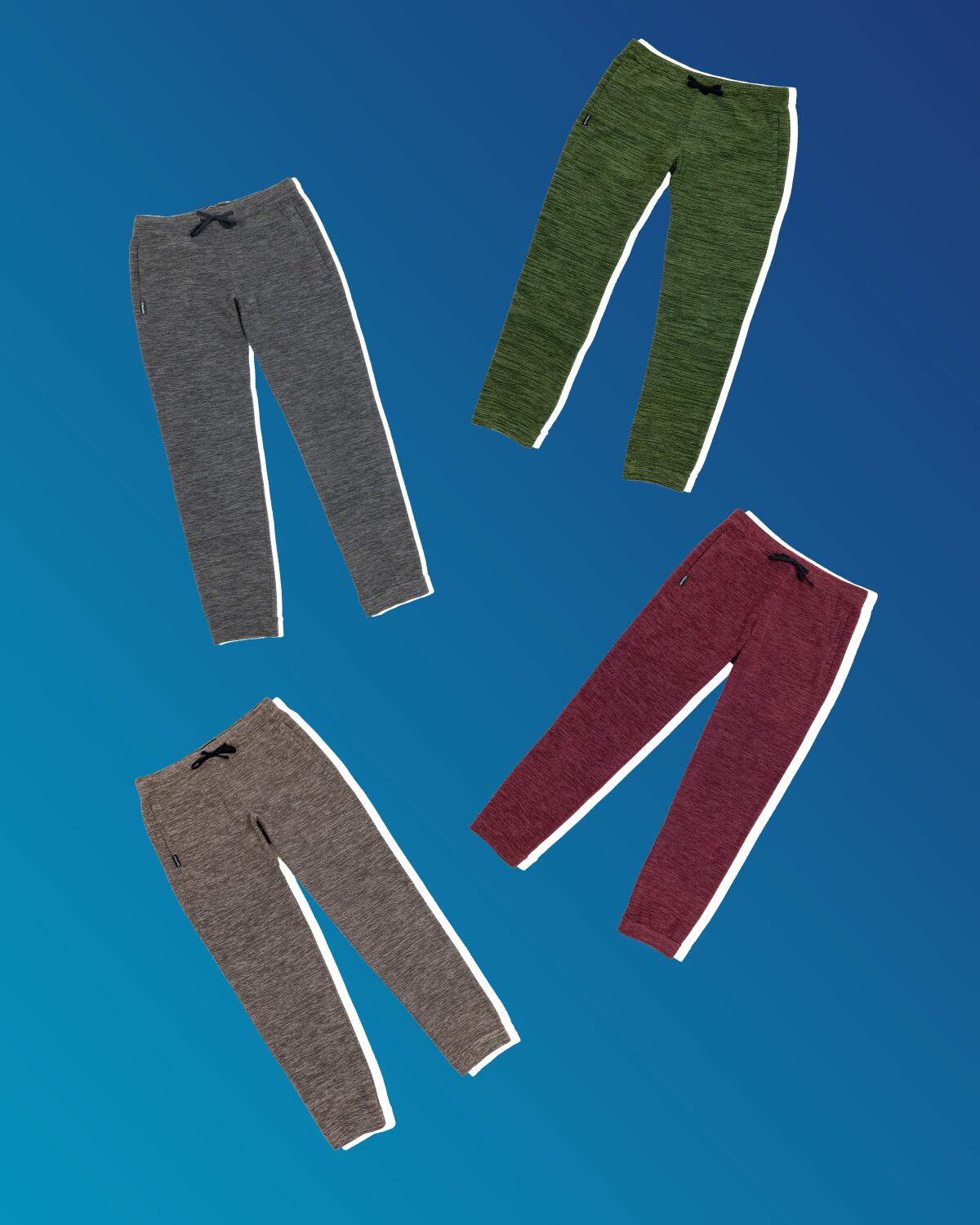
File this under “how coffee can keep you from getting stinky.” Eco-minded clothes maker Coalatree offers hoodies and jogging pants made from recycled coffee grounds and plastic bottles. It’s an interesting fabric mix, with the grounds woven into the fibers, absorbing odors as you sweat. Right now the company is selling the Evolution Hoodie for $89.99 and Evolution Joggers for $89. It’s also working on a midlayer version for $64.
P.S.
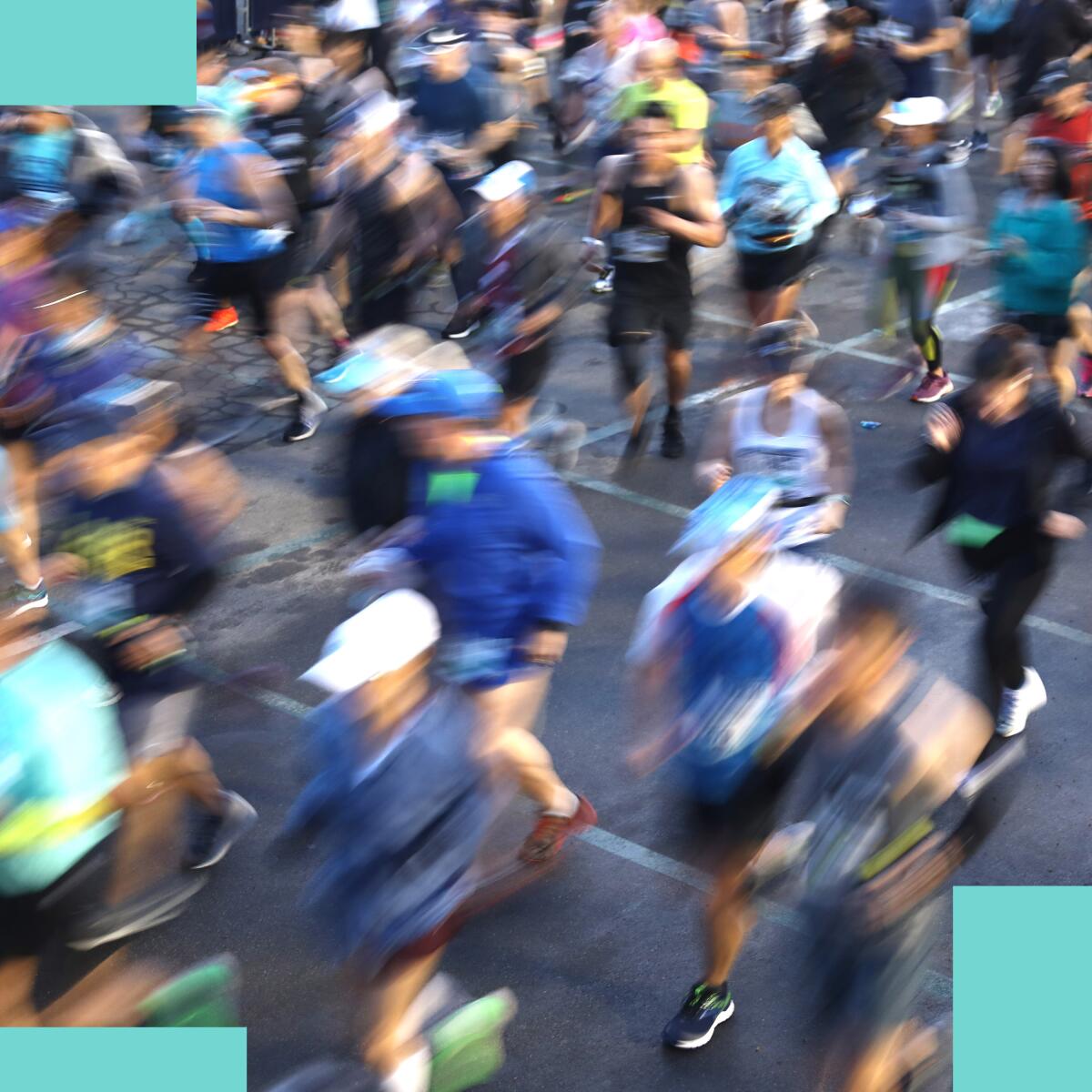
As Southern California and areas around the state begin to slowly reopen, here are planning dates to keep in mind:
The Los Angeles Marathon usually takes place in March. Organizers shifted the race to an in-person event Nov. 7, which means more time to get ready and train. Signups are open now. Registration also is open for the Long Beach Marathon, which is set for Oct. 10. The marathon starts at 6 a.m. and the half-marathon at 7:30 a.m. Long Beach also offers a virtual option for those who want to run their marathon race and keep their distance.
The Angeles Crest 100 Mile Endurance Run was canceled in 2020 because of the coronavirus. This year the ultramarathon starts at 5 a.m. Aug. 7 in Wrightwood and cuts through the San Gabriel Mountains (Mt. Baden-Powell is part of the course) to finish in Alta Park in Altadena. This one is for curious spectators, as the spots are filled and there’s a wait list, according to the race’s website.
Mammoth Mountain Ski Area in Mammoth Lakes says spring skiing will stretch at least until Memorial Day. The resort reports snow season totals of 238 inches at the main lodge and 286 inches at the summit. In the Lake Tahoe ski resort area, Squaw Valley-Alpine Meadows hopes to stay open until May 31 too, weather and conditions permitting. Other resorts such as Homewood, Kirkwood, Sierra-at-Tahoe, Sugar Bowl, Tahoe Donner and Tahoe XC skiing plan to close April 11. Boreal + Soda Springs, Diamond Peak, Heavenly and Mt Rose say they’ll close April 18.
Lastly, thanks to the reader who reminded me that Mt. Whitney is the highest peak in the contiguous U.S. In last week’s newsletter, I had deemed it highest in the continental U.S. (Sorry, Denali!)
Send us your thoughts
Share anything that’s on your mind. The Wild is written for you and delivered to your inbox for free. Drop us a line at [email protected].
Click to view the web version of this newsletter and share it with others, and sign up to have it sent weekly to your inbox. I’m Mary Forgione, and I write The Wild. I’ve been exploring trails and open spaces in Southern California for four decades.

Sign up for The Wild
We’ll help you find the best places to hike, bike and run, as well as the perfect silent spots for meditation and yoga.
You may occasionally receive promotional content from the Los Angeles Times.




